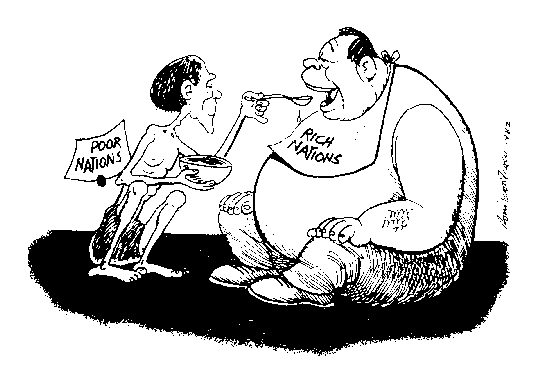
Is it time for dependency theory to make a comeback? Its central idea is that developed (”core”) countries benefit from the global system at the expense of developing (”periphery”) countries—which face structural barriers that make it difficult, if not impossible, for them to develop in the same way that the already developed countries did. As neo-classical economics came to dominate the field in the 1980s, the theory lost prominence and traction. Given the vast imbalances that persist within and among nations in the global economy today, it’s an opportune time to revisit the framework.
To that end, INET’s Young Scholars Initiative (YSI) has released a new e-book, Conversations on Dependency Theory. The volume, released by YSI’s Economic Development Working Group, comprises interviews with 13 scholars from around the world who express a variety of viewpoints on the meaning and relevance of dependency theory in today’s context. It also includes discussions of the tensions and contradictions within the dependency theory framework, as the interviewed scholars diverge on a number of key questions, such as:
- The nature and history of capitalism
- The definition of development, and the extent to which development is possible under capitalism
- Whether the key mechanisms that underpin relations of dependency are primarily economic or if political, social and other mechanisms are equally important
- The relationship between the local and the global, and whether solutions lie at the national or global level
- Whether it is necessary to break with relations of dependency, and if so, whether this is possible and how it can be done.
- How countries such as South Korea were able to move from “core” to “periphery”
Critiques of dependency theory are also discussed, including areas where dependency theory needs to be expanded or refined, e.g., in class analysis and individual characteristics of underdeveloped countries. Furthermore, some unorthodox applications of dependency theory are assessed, such as analysis of emerging South-South relations and the dominance of BRICS and intra-European relations after the Cold War.
Download individual chapters here:
- Preface (by Professor Jimi Adesina, College of Graduate Studies, University of South Africa)
- Introduction: Why Should We Discuss Dependency Theory Today? (by Ushehwedu Kufakurinani, Ingrid Harvold Kvangraven, Frutuoso Santanta, and Maria Dyveke Styve)
- Chapter 1: A Dependency Pioneer (Samir Amin)
- Chapter 2: Dependency Theory and Its Enduring Relevance (Adebayo O. Olukoshi)
- Chapter 3: The Relevance of Dependent Development Then and Now (Peter Evans)
- Chapter 4: Whither Dependency Theory (Sabelo Ndlovu-Gatsheni)
- Chapter 5: The Caribbean Plantation Economy and Dependency Theory (Rex McKenzie)
- Chapter 6 – A Theoretical Revolution in Time and Space (Ramón Grosfoguel)
- Chapter 7: The Informal Empire of London (Andy Higginbottom)
- Chapter 8: The Political Economy of Africa and Dependency Theory (Patrick Bond)
- Chapter 9: Dependency Theory Today (Miguel Angel Centeno)
- Chapter 10: The More Things Change, the More They Stay the Same (Ian Taylor)
- Chapter 11: Dependency Theory Is Alive in Different Guises (Matías Vernengo)
- Chapter 12: Dependency Theory and Chinese Special Economic Zones in Africa (Honita Cowaloosur)
- Chapter 13: Varieties of Dependence in Europe (László Bruszt)
